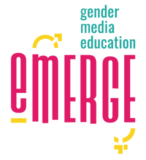e-Media Education about Representations of GEnder
Diversity in all its dimensions has to be taken into account in the learning context, at school, as it is fundamental for facilitating cultural inclusion and equality. However it is not easy for teachers to adapt their teaching to this diversity, whether it is social, economic or cultural. Gender equality is particularly essential for the inclusion of all. Perception of gender is rooted in the family tradition and social contexts but also within media practices, vectors of stereotypical representations.
But teachers are poorly trained in gender representation and stereotypes conveyed through the media, especially if their target groups, the students have themselves media and cultural practices ignored by the teachers.
It’s why the eMERGE project (e-Media Education about Representations of GEnder) aims to empower teachers’ skills in media literacy in order to deconstruct with students the gender representations and stereotypes rooted in their media practices and pop cultures.
eMERGE is conducted by a consortium of four teachers training centres/university in media literacy field from four European countries : Media Animation (Belgium, coordinator), Mediawise Society (Romania), University of Palermo (Italy) and Athens Lifelong learning Institute (Greece).
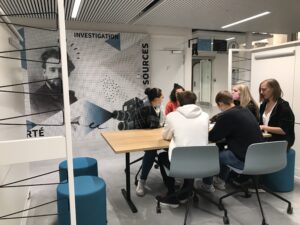 To achieve its goal, eMERGE project aims the following specific objectives:
To achieve its goal, eMERGE project aims the following specific objectives:
1. To co-design a methodological approach that would allow each teacher to seek and identify media practices and consummations of their students from diversity.
2. To develop teachers’ media literacy skills about gender representation in pop culture/cultural studies. It’s available here in open access.
3. To empower teachers with educational approach in media education about gender stereotypes, adaptable to media and cultural practices of their students.
4. To raise secondary students’ awareness about gender representations in media and the effects on citizenship and living together of the class/school community including through local digital media productions.
5. To foster citizenship within local communities through the elaboration and valorization of students digital media production.
If you would like to be part in and receive further information , don’t hesitate to contact info@project-emerge.eu .
eMERGE consortium
Média Animation (coordinator, Belgium)
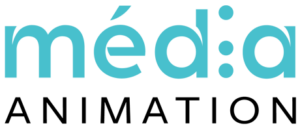
Media Animation is the media and multimedia education resource centre for the Belgium French-speaking Community. It is recognized and subsidised by the Ministry of Education and Ministry of Culture. It is also a centre for vocational training and a lifelong learning education centre for adults. Média Animation was founded in 1972. It was granted crucial funding to implement research, information, training and educational publication and resources in media education. Média Animation mission is to support operators in the field of education,culture and social work along two complementary action lines:
- Consultancy, audiovisual and multimedia production: professional production support to operators in the cultural and educational fields.
- Media and multimedia literacy : raising awareness with political and educational stakeholders, training teachers and educational mediators (social workers, educators etc.), publishing pedagogical resources, setting up research actions, etc.
Related to eMERGE project topics, we can particularly point out :
- MEET (Media Education for Equity and Tolerance – https://meetolerance.eu/): a project aiming at promoting a critical and inter-cultural understanding as well as an aware use of media among young citizens in multicultural public schools and democratic societies. Media education activities and methods to support social inclusion and acts of democratic citizenship at school and in society at large were developed including videos, learning scenarios and pedagogical guidelines.
- MEDIANE and MARS projects (Council of Europe as coordinator) in which the diversity inclusiveness in media were the key point and goals for vocational training.
- Pop Modèles (https://popmodeles.be/) : 7 videos (FR) and analysis developed by the educational team of Média Animation to explore the many representations stigmatizing women in popular media and pop culture.
Contact for Media Animation asbl : Anne-Claire Orban (ac(dot)acorban(arobase)media-animation(dot)be
Athens Lifelong Learning Institute (Greece)
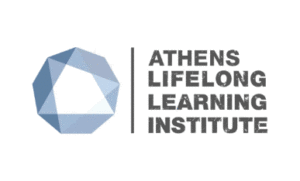 ALLI is a research and education institute with the mission to foster and enhance innovation processes mainly in the areas of education and lifelong learning, human capital development, knowledge society and social inclusion. The Institute exhibits an active interest in a number of social issues such as social exclusion, discrimination and suppression of human rights and has attempted through the implementation of innovative learning methodologies to moderate their impact.
ALLI is a research and education institute with the mission to foster and enhance innovation processes mainly in the areas of education and lifelong learning, human capital development, knowledge society and social inclusion. The Institute exhibits an active interest in a number of social issues such as social exclusion, discrimination and suppression of human rights and has attempted through the implementation of innovative learning methodologies to moderate their impact.
It has a long experience in the development of educational curricula and programmes that keep abreast to the new developments, social demands and European priorities and endorses a firm belief that real-world problem-based learning and innovative teaching methods inspire curiosity and improve learning ability, especially for disengaged and disconnected learners.
Active in the fields of digital and media literacy, ALLI aims to facilitate the enabling role that the use of ICTs in our societies, understanding however, that in order to thrive in the connected economy and society, people should also acquire the necessary digital and media literacy skills. In this context, it is actively engaged in the development of resources on media literacy and media education and undertakes a range of activities in order to raise awareness on these issues on a local and national level; while it also cooperates with a wide range of highly acclaimed national and European organizations in the field of media literacy.
Like, for instance and closely related to the aims of the EMERGE project objective – they have been undertaking a series of activities focusing on the advancement of youths’ digital competencies as an enabling tool for their active citizenship in order to render them capable to deal with the opportunities and threats brought about by the new digital media technologies.
Contact for Athens Lifelong Learning Institue : info@athenslifelonglearning.gr
Mediawise Society (Romania)
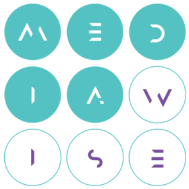 Mediawise is a Romanian non-governmental organisation whose mission is to develop media literacy among children, youth and adults in an increasingly mediated society. They aim at building a national and regional community of practice in the field of media literacy education and research. Peer learning and knowledge exchange is at the base of their community construction. It organizes media literacy creative workshops for children and parents, as well as courses for librarians, teachers and pedagogy students. Mediawise Society advocates for media literacy in schools and develop educational resources for parents, teachers and trainers. Civic participation, respect for diversity and human rights and critical learning are at the base of Mediawise actions.
Mediawise is a Romanian non-governmental organisation whose mission is to develop media literacy among children, youth and adults in an increasingly mediated society. They aim at building a national and regional community of practice in the field of media literacy education and research. Peer learning and knowledge exchange is at the base of their community construction. It organizes media literacy creative workshops for children and parents, as well as courses for librarians, teachers and pedagogy students. Mediawise Society advocates for media literacy in schools and develop educational resources for parents, teachers and trainers. Civic participation, respect for diversity and human rights and critical learning are at the base of Mediawise actions.
Contact for Mediawise : office@mediawise.ro
University of Palermo (Italy)
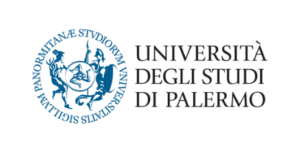 UNIPA has a special interest in the field of Education, Social Work, Longlife Learning, Community Development and Communication, both at research and teaching level. Some of the EU-funded projects where UNIPA has been involved are:
UNIPA has a special interest in the field of Education, Social Work, Longlife Learning, Community Development and Communication, both at research and teaching level. Some of the EU-funded projects where UNIPA has been involved are:
- SMOOTH Educational Spaces. Reversing inequalities through educational spaces which aims to contrast inequalities by strengthening networking activities among different actors in the educational fields and developing youth competencies in the digital public sphere ;
- COMMIT – COMMunIcation campaign against exTremism and radicalisation which aims to prevent and raise awareness in young people against extremism, radicalism, hate speech, populistic propaganda and fake news;
As far as teachers’ training in media/digital literacy is concerned the University of Palermo University has also recently led a blended training program for almost 900 Sicilian teachers who will be coordinating digital education activities in all Sicilian schools. It has also been partner of the EU project VSAV – Virtual Stages Against Violence which aims at fostering young people’s awareness of the risks and opportunities of digital media and the Internet by involving them (together with parents and teachers) in the development of unique solutions including a toolkit, online game, and a theatre play.
The University of Palermo has therefore a strong expertise in the field of Media Education and teacher training.
Contact for University à Palermo : Gianna Cappello : gianna(dot)cappello(arobase)unipa(dot)it

